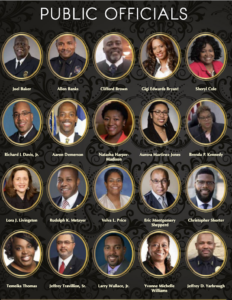
As the business world increasingly communicates through email, chat and other non-phone methods, traditional phone etiquette is getting lost. In fact, some professionals use the phone so infrequently in their work that they dread the occasional call they do have to make – probably in part because no one teaches phone norms anymore.
Here are five of the most common business phone etiquette mistakes. Avoiding these will help keep your calls on track, your co-workers and clients happy, and everyone’s phone angst to a minimum.
- Giving into phone phobia. If you’ve grown to dread phone calls, you’ve got a lot of company. But even if you hate the phone, there are times when it’s far more efficient and effective to make a call – such as when you need to hash out a complicated topic, explain nuanced information or have significant back and forth, or when you need to deliver a difficult, sensitive or easily misinterpreted message.
What to do instead: Sadly for you, sometimes you have to just bite the bullet and pick up the phone. If you’re really dreading it, though, don’t be afraid to write out talking points for yourself ahead of time. You don’t want to sound like you’re reading a script, of course, but written notes can help you structure the conversation and prevent you from having to come up with perfect wording on the fly. Plus, this will require you to think through what you’ll say ahead of time, which can make you feel much more prepared for the call.
- Leaving long, rambling voice mails that no one will finish listening to. People increasingly lack patience to sit through entire voice-mail messages if they’re long, possibly because listening to long voice-mail messages feels inefficient now that we’re all used to being able to quickly skim an email for key highlights. In fact, these days, some people don’t listen to their voice-mail messages at all. And if the person is one of the many who will simply call back when they see they missed your call, without listening to your message, you’ll end up repeating all that same information again anyway.
What to do instead: If you’re leaving a voice-mail message, it should be quick: your name, your phone number (if needed) and a brief explanation of the reason for your call. Note the word “brief” there; this is not the time to go into every detail of the situation you’re calling about. But on the other end of the spectrum …
- Leaving cryptic voice-mail messages. While long, rambling messages aren’t ideal, you don’t want to go too far in the other direction and leave messages with too little information either. Messages like “this is Jane, call me back” give the recipient no information about why you’re calling and thus no way to judge how urgent your call is or how to prioritize it relative to other pressing tasks.
What to do instead: Briefly explain the reason for your call. Bonus points if you’re clear when the situation is either time-sensitive (“I need to hear back from you by 4:00 because the printer deadline is 5:00”) or utterly not time-sensitive (“No rush on this, just whenever you have time”).
- Calling when you could have sent a quick email. This one won’t be true in all offices, but in many offices, there’s an expectation that if you can deal with something quickly in email, you’ll choose email instead of the phone. The idea is that phone calls interrupt whatever the other person is doing and require an immediate response, whereas emails allow the person to respond at a convenient moment.
What to do instead: Pay attention to the norms in your particular office. If your workplace is one that prefers email, it’s usually smart to operate within those norms (unless you’re the boss, in which case your preferences will probably win out).
- Not picking up on cues from the person you’re talking with. Ask people their pet peeves about business phone calls, and you’ll hear that calls drag on too long or come at inopportune times. Ideally, people would be comfortable saying, “I’m actually on deadline right now. Can I get back to you later this afternoon?” or “I’ve got to run to a meeting that’s about to start.” But in reality, many people won’t say these things and will just get annoyed that you’re not picking up on their cues.
What to do instead: Pay attention to the signals that the person you called is sending out. If the person sounds busy or distracted, ask if it would be better to talk at another time and/or try to wrap up the call quickly.
Courtesy usbusinessnews.com




